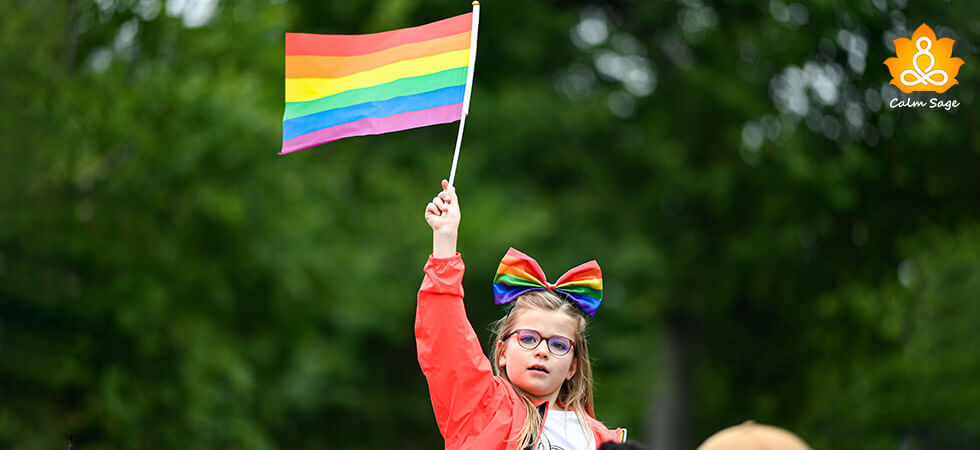Anxiety and Depression in LGBTQ People | Facts, Concerns, and Preventive Measures
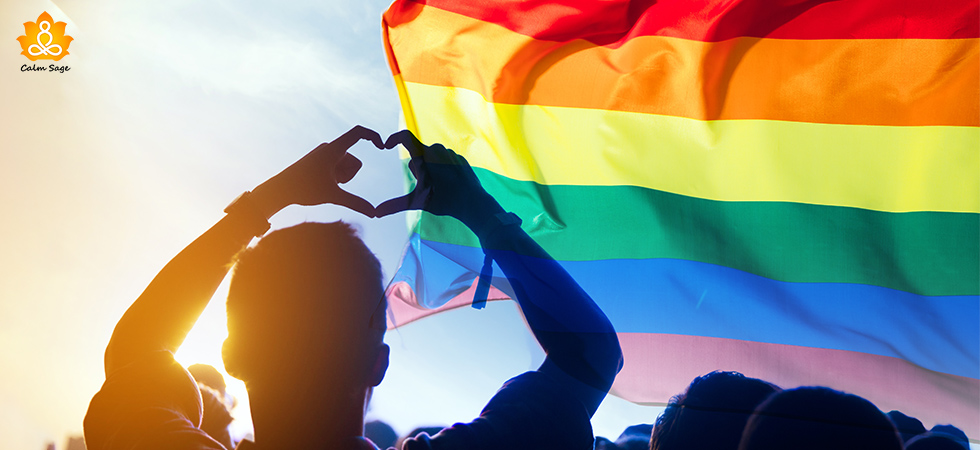
The majority of LGBTQIA++ community members lead happy, healthy, and fulfilling lives with their partners. After being accepted by law and society they have experienced positive changes in their lives. However, certain risk factors do make the LGBTQ community vulnerable to different mental health conditions. Studies have also found and supported the link between LGBTQ, depression, anxiety, and other conditions. We are sharing some stats with you which might help you understand the mental health challenges of the LGBTQIA++ community.
Alarming Facts On LGBTQ Mental Health
To begin with, let us first look at some alarming facts that will help you understand the mental health status among the LGBTQ community, and why it is the need of the hour to talk about it!
- The link between homosexuality and depression is six times more prevalent than heterosexual counterparts.
- The suicide rate among the LGBTQ community is 3 times higher than the heterosexual one.
- Around 20-30% of LGBTQ people abuse substances and the major reasons behind the same are gay depression, lesbian depression, gay anxiety, and LGBTQ prejudices.
- Nearly 4 in 5 (79%) of LGBTQ+ people reported a negative impact on their mental health amid the lockdown.
- On average 30-60 percent of lesbians, bisexuals, transgender, or gay men deal with depression and anxiety in their lives.
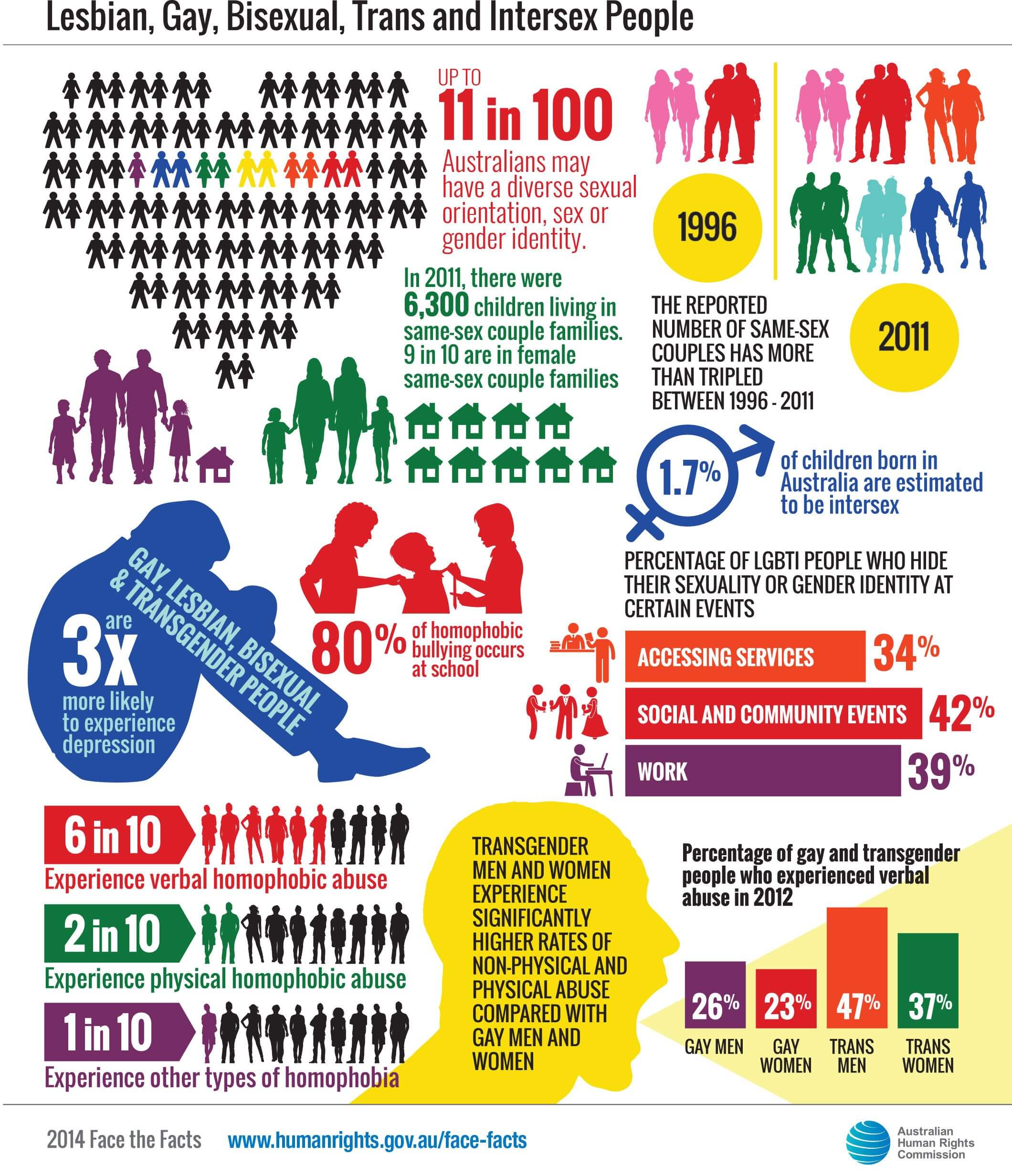
Risk Factors To LGBTQ Community’s Mental Wellness
The sexual orientation of an individual is not the underlying reason behind these alarming facts on LGTBQ mental health conditions. Certain risk factors expose LGBTQ to depression, anxiety, and other conditions. This includes factors like:
1. Accepting their Sexual Orientation and Coming Out
Despite the laws being formulated in support of the LGBTQ community, people still fear the process of accepting their sexual orientation and coming out of the closet. The laws might protect them at the backend but at the front line, they have to explore and walk this journey on their own. This can make an individual either feel empowered and liberated or distressed and frightened. While the former adds to their self-esteem, later can result in depression and anxiety if not taken care of.
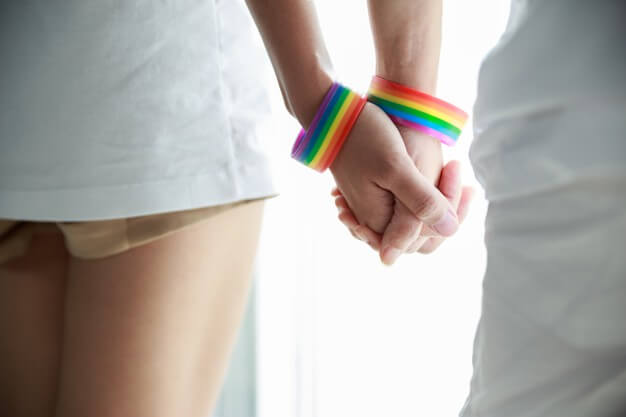
2. Rejection from Loved Ones and Society
Although society and people from the community are readily and happily accepting LGBTQ people, they still face rejection in one form or another. After coming out rejection can turn their experience into a traumatic life event. Not being accepted and identified by close friends, family members, work colleagues, and community can become a major life challenge. Even available stats support the same. Nearly 40% of adults and 86% of school-going LGBTQ youth are subjected to rejection. Which naturally works as a trigger for depression and anxiety.
3. Minority Stress
The term “minority stress” is used to describe the high levels of stress that are experienced by minority groups, resulting from stigmatization and prejudices that they undergo. This factor is found to result in depression and anxiety among LGBTQ people. A study has also found a direct relationship between the impact of minority stress on mental health and one’s internalized homophobia/transphobia. Suggesting that people with higher self-esteem and self-acceptance are less likely to experience minority stress.
4. Trauma from Past
If there has been an unpleasant and traumatic life experience earlier resulting from identity-based shame in life, it may result in trauma for an individual. Past experiences of stigmatization, labeling, denial of opportunities, any form of abuse in the name of homophobia, transphobia, biphobia, or bullying can later show up in the form of anxiety and depression. This is the reason why gay and lesbian depression is more common than heterosexual ones. Unlike LGBTQ people they do not face these triggers at the early stages of their life.
5. Substance Use and Abuse
Substance use and abuse are both a cause and consequence of depression and anxiety in the LGBTQ community. They learn to use and abuse substances as a way of coping through life stressors, depression, and anxiety.
6. Inadequate Mental Health Care
The above reasons could be curbed or reduced if there were adequate mental health care facilities for LGBTQ people. They barely have any door to knock and seek mental health support without any prejudices acting as a hurdle. The lack of empathy, cultural competency, LGBTQ affirming professionals, and a safe place to express themselves makes it difficult for them to build healthy coping mechanisms. Luckily, with changing times LGBTQ therapy and dedicated online therapy platforms like Pride counseling are providing a safe environment for LGBTQ people to come out, talk about their mental health, and get the much-needed support. But the mental health care providers still need to grow in this direction to provide ultimate recovery to people of the LGBTQ community.
Other Factors Contributing to Anxiety and Depression in LGBTQ
Apart from the 6 major risk factors discussed above, there are some other factors as well that contribute to gay or lesbian depression and anxiety. This includes factors like:
- Violence
- Homelessness
- Macroaggression
- Forming relationships
- The pressure to conform
- Internalized homophobia
Understanding Depression and Anxiety in LGBTQ Community (In Detail)
Mental health issues like depression and anxiety can be experienced by anyone, however, they are found to be more common in the LGBTQ community.
LGBTQ and Depression
Depression is a mental health condition that is marked with persistent feelings of sadness, guilt, emptiness, or anger that interfere with the daily life functioning of an individual. Gay men are 3 times more likely to have depression when compared to heterosexuals. While lesbian women’s depression is 2 times more prevalent. Some of the common symptoms of depression are:
- Feeling agitated, restless, or irritable.
- Changes in appetite, concentration, sleep, or energy.
- Feeling hopeless, worthless, guilty, or self-hating.
- Losing interest or pleasure in doing things you once enjoyed.
Impact of Depression on LGBTQ Community (The Stats)
Depression does impact the LGBTQ community on a large scale. An article published in the Archives of General Psychiatry suggested the prevalence rates of MDD among gay, bisexual, and lesbian people were 71.4 percent. Which if compared with heterosexuals is 38.2 percent.
Another study found that gay men’s depression is more prevalent than heterosexual men’s. According to the American Journal of Epidemiology, 10.3 percent reports Major Depressive Disorder (MDD) and that for heterosexual men is 7.2 percent.
LGBTQ and Anxiety
Anxiety is experienced when constant thoughts of worry or fear hold an individual back from carrying out their everyday life effectively. There are different types of anxiety-related disorders ranging from Generalized Anxiety Disorder (GAD) to phobias. Even PTSD falls in the anxiety spectrum of mental health issues. Here are some common symptoms of anxiety:
- Feeling restless or edgy.
- Experiencing fatigue.
- Having trouble concentrating or feeling as if your mind is going blank (continued).
- Feeling irritable and agitated.
- Having tense or tight muscles.
Impact of Anxiety on LGBTQ Community (The Stats)
According to the research available, it has been found that gay and bisexual men report twice the rate of anxiety and related mental health issues as their heterosexual peers (Canadian Journal of Psychiatry). Another study found that lesbian women are more likely to develop substance abuse than heterosexual people.
Note:It is important to remember here that it is not the sexual orientation of an individual that gives rise to a higher number of depression and anxiety cases in them. It is the way people treat LGBT people that increases their risk for the same.
Ways to Deal with LGBTQ Anxiety and Depression
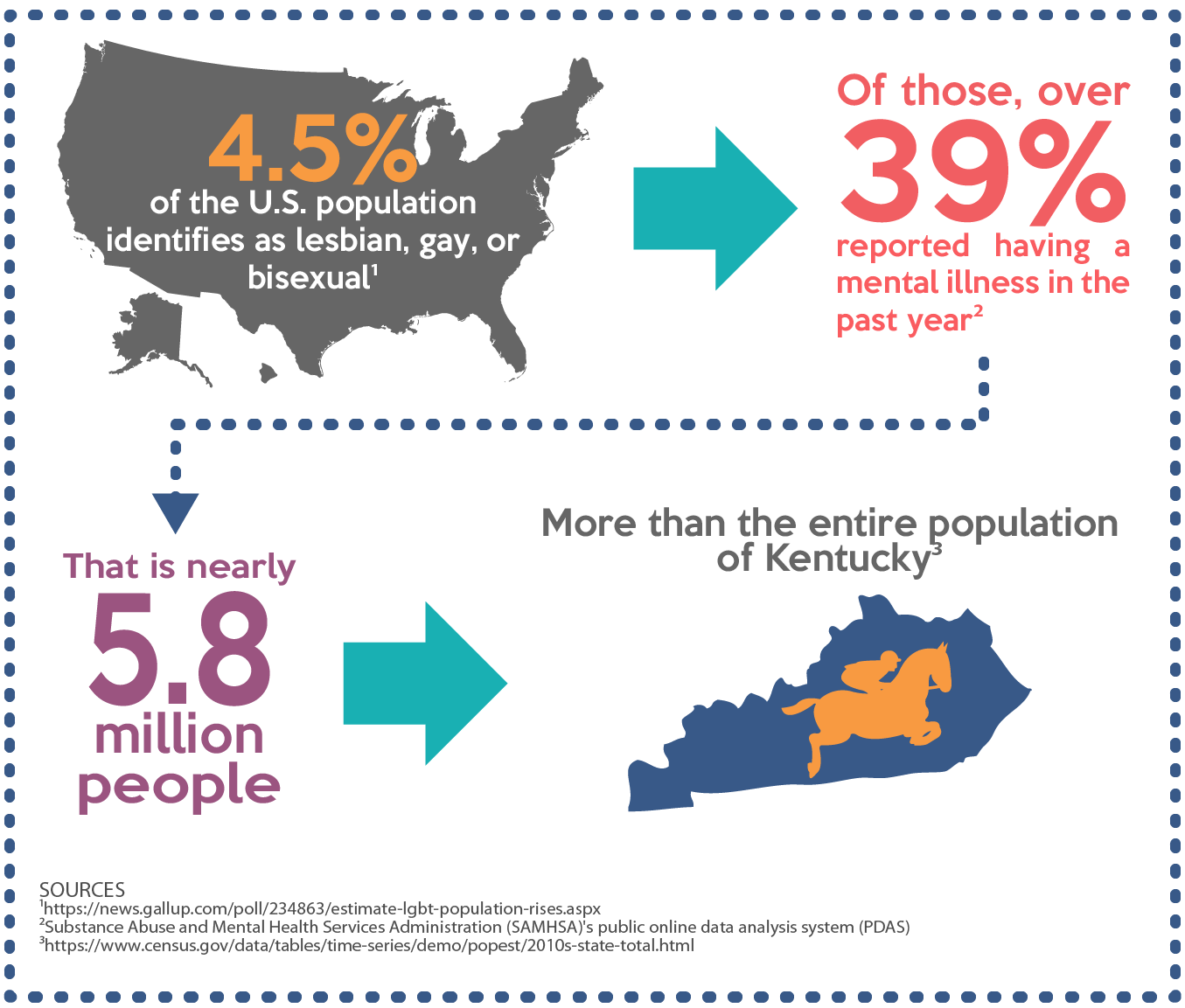
Now that we know the factors contributing to the numbers let us review some measures that can help LGBTQ community people deal with anxiety and depression.
- Identify Your Feelings: Start mental health journaling as a self-help practice. It will allow you to identify how you are feeling and further guide you how you can work towards resolving the same.
- Join A Support Group: Support groups are a great way to connect with like minded people, get inspired by their story, or be someone else’s source of motivation. You can join a support group either offline or online, whichever way suits you best.
- Book Your Appointment with A Professional: Taking a dose of “the talking cure” is also a great way to deal with depression and anxiety experienced by an individual. They allow you to explore your mental and emotional health along with finding the “root causes” of the issue. Which of course is followed by aiding you in developing effective coping mechanisms to face life challenges.
The good news is that now there are separate protocols and therapy platforms dedicated to LGBTQ community, making it easy for them to talk and offering them effective treatment, with a safe environment.
Read more about LGBTQ therapy click here.
- The National Suicide Prevention Lifeline – 1-800-273-8255
- National Domestic Violence Hotline – 1-800-799-7233
- NAMI Helpline (National Alliance on Mental Illness) – 1-800-950-6264
- RAINN (Rape, Abuse, and Incest National Network) – 1-800-656-4673
LGBTQ Mental Health and FAQs
Q1. Why do members of the LGBTQ community are at higher risk of experiencing mental health conditions?
The risk factors discussed above are the major contributing factors to the high prevalence of depression, anxiety, and other mental health conditions among the LGBTQ community. Apart from it, lack of support at personal and professional levels elevates the number of cases.
Q2. What are the most common mental health issues among LGBTQ people?
The most common mental health issues experienced by the LGBTQ community in order of their prevalence is:
- Depression
- Anxiety
- Post-traumatic stress disorder (PTSD).
- Substance abuse.
- Thinking about or attempting self-harm.
Note: If you are having thoughts of self-harm, connect with a loved one immediately, talk it all out or call a helpline number. If you know someone who is recently talking about self-harm, learn the 4 step suicide prevention technique here.
Q3. When should a person from the LGBTQ community look for mental health help?
Every individual might experience a different combination of signs that warns them to seek help from a mental health professional. The first and foremost sign that is the most important to me is- If you feel that you are suffering in silence, go and seek help immediately. Apart from it, you may look for the following signs and seek talk therapy at your earliest:
- No longer wanting to do things that you once enjoyed.
- Cutting off from your loved ones (limited social interaction than usual).
- Feeling tired or exercising fatigue (lack of energy).
- Excessive use of a substance to cope with the feelings.
- Frequent crying episodes.
- Thoughts of harming self.
You may also read more about the signs that mark the need of seeking a therapist by clicking here.
Q4. How does talk therapy help to deal with LGBTQ depression?
Talk therapy offers a safe and healthy space to individuals with LGBTQ wherein they can share their thoughts and feelings with a licensed professional. Nowadays, mental health professionals are even trained to be sensitive and specialized in helping LGBTQ people with their mental health needs. They provide concrete support and help you develop healthy coping strategies, which aids in carrying forward your life healthily.
With this guide of ours on the LGBTQ community and mental health we hope you have found answers to your questions and concerns. To know more or to talk with someone before taking that first step towards your mental wellness, feel free to connect with us at info@calmsage.com
We are always here to listen to you, help you, and comfort you!
More power, love, and a big tight hug to you!
P.S.: Love is all that matters!







